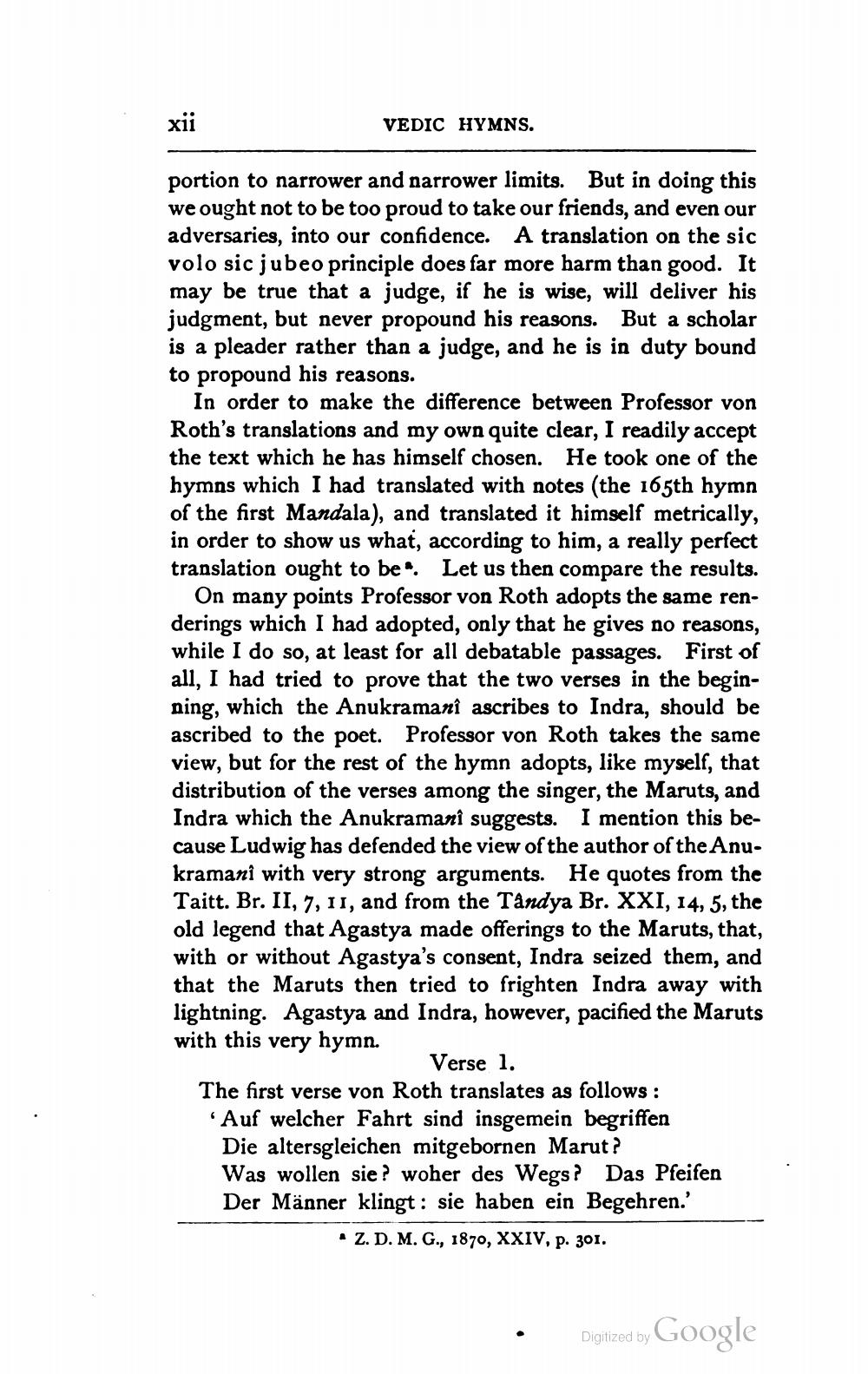________________
xii
VEDIC HYMNS.
portion to narrower and narrower limits. But in doing this we ought not to be too proud to take our friends, and even our adversaries, into our confidence. A translation on the sic volo sic jubeo principle does far more harm than good. It may be true that a judge, if he is wise, will deliver his judgment, but never propound his reasons. But a scholar is a pleader rather than a judge, and he is in duty bound to propound his reasons.
In order to make the difference between Professor von Roth's translations and my own quite clear, I readily accept the text which he has himself chosen. He took one of the hymns which I had translated with notes (the 165th hymn of the first Mandala), and translated it himself metrically, in order to show us what, according to him, a really perfect translation ought to be". Let us then compare the results.
On many points Professor von Roth adopts the same renderings which I had adopted, only that he gives no reasons, while I do so, at least for all debatable passages. First of all, I had tried to prove that the two verses in the beginning, which the Anukramani ascribes to Indra, should be ascribed to the poet. Professor von Roth takes the same view, but for the rest of the hymn adopts, like myself, that distribution of the verses among the singer, the Maruts, and Indra which the Anukramani suggests. I mention this because Ludwig has defended the view of the author of the Anukramani with very strong arguments. He quotes from the Taitt. Br. II, 7, 11, and from the Tandya Br. XXI, 14, 5, the old legend that Agastya made offerings to the Maruts, that, with or without Agastya's consent, Indra seized them, and that the Maruts then tried to frighten Indra away with lightning. Agastya and Indra, however, pacified the Maruts with this very hymn.
Verse 1. The first verse von Roth translates as follows :
Auf welcher Fahrt sind insgemein begriffen Die altersgleichen mitgebornen Marut? Was wollen sie? woher des Wegs? Das Pfeifen Der Männer klingt: sie haben ein Begehren.'
• Z. D. M. G., 1870, XXIV, p. 301.
•
Digitized by G
Digitized by Google




